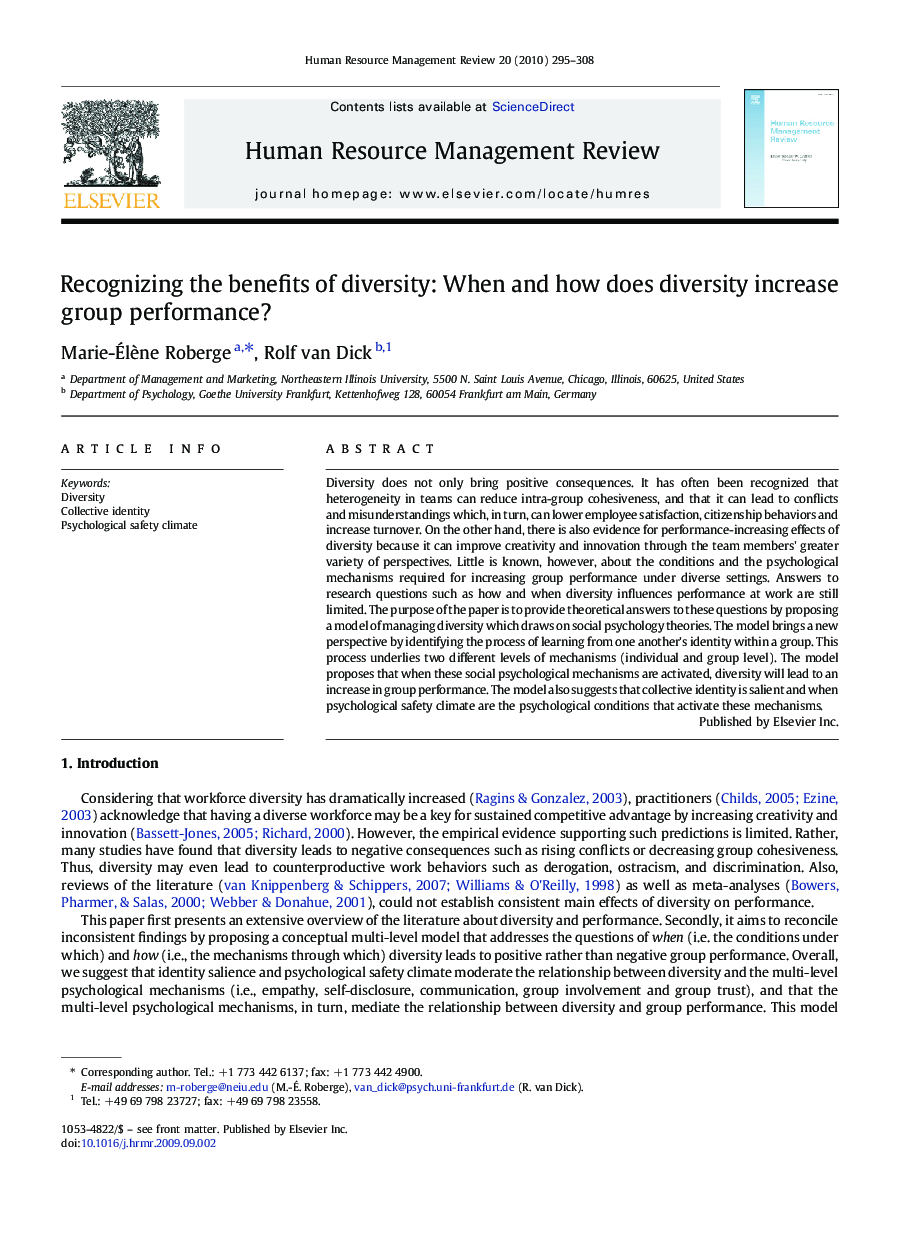| Article ID | Journal | Published Year | Pages | File Type |
|---|---|---|---|---|
| 879724 | Human Resource Management Review | 2010 | 14 Pages |
Diversity does not only bring positive consequences. It has often been recognized that heterogeneity in teams can reduce intra-group cohesiveness, and that it can lead to conflicts and misunderstandings which, in turn, can lower employee satisfaction, citizenship behaviors and increase turnover. On the other hand, there is also evidence for performance-increasing effects of diversity because it can improve creativity and innovation through the team members' greater variety of perspectives. Little is known, however, about the conditions and the psychological mechanisms required for increasing group performance under diverse settings. Answers to research questions such as how and when diversity influences performance at work are still limited. The purpose of the paper is to provide theoretical answers to these questions by proposing a model of managing diversity which draws on social psychology theories. The model brings a new perspective by identifying the process of learning from one another's identity within a group. This process underlies two different levels of mechanisms (individual and group level). The model proposes that when these social psychological mechanisms are activated, diversity will lead to an increase in group performance. The model also suggests that collective identity is salient and when psychological safety climate are the psychological conditions that activate these mechanisms.
